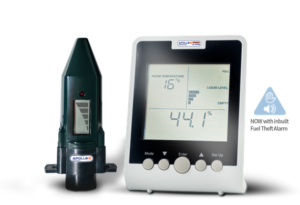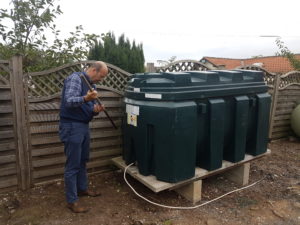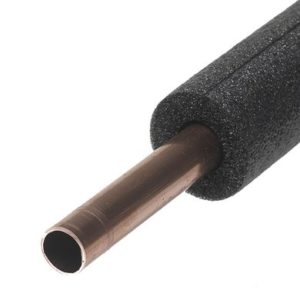Moving to a new house can be a stressful time and even more so if you are new to oil heating systems.
This heating oil guide is designed to help answer the most common questions on the fundamentals of domestic heating oil, oil tanks and additives.
Firstly, I will give you a bit of background on heating oil and oil heating systems before we move on to the FAQs.
An Introduction to Heating Oil
Heating oil is used by roughly 1.5 million homes in England, Scotland and Wales making heating oil the most common alternative to gas.
The main difference between gas and oil is the presence of an oil tank on your premises. And, the fact that you are solely responsible for ensuring your oil level is checked regularly and you don’t run out of fuel.
Commonly, domestic oil-fired heating systems are powered by kerosene, but some do use red diesel. This is always important to check before potentially ordering the wrong fuel.
Be wary that heating oil and red diesel can have different names.
Heating oil is also called:
- Kerosene
- Burning oil
- 28-second heating oil
And, red diesel is also known as:
- Gas oil
- 35-second oil
- Plant diesel
- Agricultural diesel
- Cherry oil
Now, on to the FAQs…
What do I need to know before ordering?
Before you order your first lot of heating oil, make sure that you have considered:
- The capacity of your oil tank and the current oil level – this will help you to decide the quantity of oil you require (minimum is 500L by law).
- The upcoming weather – If there is a prolonged cold spell forecast then you may want to consider stocking up.
- Your preferred payment method – Choose how you want to pay for your order.
- The desired delivery date – The majority of suppliers offer a standard 10 working day delivery with an option for quicker delivery at higher prices.
How can I avoid running out?
One of the simplest ways is setting a regular reminder to go and check your oil level every month/couple of weeks.
Or, for a more hi-tech solution, you can install a tank monitor which keeps track of your oil level and sends real-time updates to a monitor in your home. Some even include a built-in alarm to warn off any thieves.
Despite being highly effective, these can come at a bit of expense so it really depends on your personal preference.
The most popular models include Apollo and Watchman.
How much should I order?
Bear in mind, that the larger the quantity you order the cheaper price per litre. However, consider your current oil level and the capacity of your tank before you decide how much to order.
Unsure about the capacity of your oil tank? Check the make and model, then search for the capacity online.
How do I check my oil level?
The ever-reliable method of dip sticking still remains one of the easiest ways of checking your oil level.
 A dipstick can be fashioned out of something such as a broom handle and then plunged to the bottom of your tank. Remove the dipstick and measure the top of the oil mark against the side of your tank. This will give you an indication of your current oil level. Comparing this mark to the capacity of your tank allows you to estimate the required volume needed to fill it to the brim.
A dipstick can be fashioned out of something such as a broom handle and then plunged to the bottom of your tank. Remove the dipstick and measure the top of the oil mark against the side of your tank. This will give you an indication of your current oil level. Comparing this mark to the capacity of your tank allows you to estimate the required volume needed to fill it to the brim.
For a more Hi-tech solution, check out electronic gauges. Once installed, these read your oil level and send the information directly to a monitor or a mobile app. Therefore, you get accurate, up to date readings of your remaining fuel. Popular models include Apollo and Watchman.
How do I pay for my heating oil?
Heating oil suppliers generally offer a range of payment options to choose from.
At Yorkshire Oils, we currently offer:
- Debit/credit card payments.
- monthlyPay – a budget scheme which spreads the cost of your oil bills over 12 months.
- Online payment – Transfer the order amount to the bank details shown on the invoice.
- Cheque payments – Existing customers only.
How long does oil delivery take?
 Many suppliers offer a standard 10 working day delivery with options for shorter delivery at greater expense.
Many suppliers offer a standard 10 working day delivery with options for shorter delivery at greater expense.
Whereas, we offer 3-5 working day delivery as standard and this can be made next day without the large premiums charged by typical suppliers.
Please note, that during periods of cold weather delivery may be extended due to a large increase in demand. Similarly, if the weather conditions affect delivery routes, your delivery window may also be extended.
How to order heating oil?
You can order your heating oil by calling us on 01423 396789 or by filling in our online quote form. For new buyers, we recommend that you call in order for us to discuss any requirements you may have.
How to save on your heating oil?
Save money on your heating bills with the guides shown below:
- Money Saving Expert – Cheap Heating Oil
- The government’s advice on energy grants
- Which’s guide to saving money on your energy bills
What do I do if my oil tank leaks?
For major leaks, you should try and stop any oil soaking into the ground where possible. In addition, you should contact your insurance provider and get them to send out an OFTEC technician or UKSpill accredited clean-up company.
How often should I service my boiler?
It is recommended that your boiler should be serviced once a year, by an OFTEC registered technician, in order to check and repair any faults which lead to decreased efficiency.
Note: We recommend that you use an OFTEC qualified technician for all servicing, installation and repair work. Visit the OFTEC website, where you can search for your nearest technician.
Can heating oil go off?
Heating oil doesn’t go off but there are ways in which you can keep your system in top quality condition.
- Use Additives – Additives offer many benefits including inhibiting sludge formation and reducing deposit build-ups. If untreated, these can clog up your tank and lead to further problems in your heating oil system.
- Keep your tank under good repair – cracks or loose seals can cause rainwater to enter your system causing multiple issues. Check your oil tank every month to ensure there is no water getting in.
Can heating oil lines freeze?
Heating oil can freeze but only at extreme temperatures.  However, heating oil can become too viscous to be pumped around your system at very low temperatures. One way to counteract this is to insulate any exposed oil pipes during the cold periods.
However, heating oil can become too viscous to be pumped around your system at very low temperatures. One way to counteract this is to insulate any exposed oil pipes during the cold periods.
What are heating oil additives?
Additives are comprised of multiple components which provide additional benefits to your system.
For example, Exocet Premium Heating Oil Additives aim to:
- Lower carbon emissions
- Stabilise Fuel
- Inhibit sludge formation
- Reduce deposit build-up
- Improve your system efficiency
Or, Exocet additives for oil fired AGA and Rayburn cookers aim to:
- Lower the char value
- Reduce the build-up of carbon deposits and soot
- Inhibit the growth of deposits in storage tanks
- Stabilise the fuel
- Reduce operating problems
What happens if I run out of oil?
Firstly, contact us so that an emergency delivery can be arranged. Meanwhile, call and collect 20L drums of Kerosene from our site on Rabbit Hill Business Park, HG5 0RB to keep you going whilst you wait for delivery. Our number is 01423 396789.
Please note, it may also be worth contacting your boiler engineer as your system will need bleeding.
Conclusion
I hope this heating oil guide answers all your questions and good luck with the new home/oil system. For any questions not mentioned, call us on 01423 396789.
